When it comes to skincare ingredients, few are as versatile and scientifically backed as niacinamide. Also known as nicotinamide, this powerhouse is a form of vitamin B3 that has gained recognition for its remarkable benefits across a wide range of skin concerns. From improving hydration to reducing inflammation, niacinamide is an ingredient worth incorporating into your daily skincare routine.
What is Niacinamide?
Niacinamide is a water-soluble form of vitamin B3. It is an essential nutrient, meaning our bodies cannot produce it and must obtain it through diet or topical application. Vitamin B3 is vital for cellular energy production and the synthesis of key coenzymes like NAD (nicotinamide adenine dinucleotide) and NADP (nicotinamide adenine dinucleotide phosphate), which play critical roles in maintaining healthy skin.
Top Benefits of Niacinamide for Skin
- Strengthens the Skin Barrier Niacinamide helps reinforce the skin’s natural barrier by boosting ceramide and protein synthesis. A stronger barrier means improved moisture retention and reduced transepidermal water loss, leaving the skin hydrated and resilient.
- Reduces Signs of Aging Studies show that niacinamide can smooth fine lines and wrinkles, improve skin elasticity, and enhance surface texture. By increasing intracellular NADP levels, it supports cellular repair processes and protects against oxidative stress.
- Fights Inflammation Niacinamide modulates inflammatory pathways by inhibiting poly-ADP-ribose-polymerase-1 (PARP-1), an enzyme involved in the expression of inflammatory cytokines. This makes it effective for conditions like acne, rosacea, and atopic dermatitis.
- Improves Skin Tone Niacinamide inhibits the transfer of melanosomes (pigment-carrying organelles) from melanocytes to keratinocytes, reducing dark spots and hyperpigmentation for a more even complexion.
- Regulates Sebum Production For oily and acne-prone skin, niacinamide acts as a sebostatic agent, regulating sebum production and reducing shine. This property helps prevent clogged pores and the formation of acne.
- Enhances Photoprotection Niacinamide protects the skin from UV-induced damage and suppresses photocarcinogenesis. While it is not a replacement for sunscreen, it complements sun protection by reducing the effects of photoimmunosuppression.
- Provides Antioxidant Support As a precursor to NADH and NADPH, niacinamide enhances the skin’s antioxidant defenses. It neutralizes free radicals, reducing oxidative stress and preventing premature aging.
Dermatological Applications of Niacinamide
1. Acne and Rosacea
Niacinamide’s anti-inflammatory and sebostatic properties make it a key ingredient for managing acne and rosacea. Clinical studies have demonstrated its ability to reduce redness, minimize pustules, and soothe irritation.
- Why Do Women Get Hormonal Acne?
- Best Skincare Routine for Hormonal Acne
- Painful Pimples on Face: Causes, Treatments, and Prevention
2. Anti-Aging and Photodamage
Topical niacinamide has shown efficacy in improving the appearance of aging skin. It reduces fine lines, enhances elasticity, and repairs photodamage caused by prolonged sun exposure.
3. Skin Barrier Disorders
For conditions like eczema and atopic dermatitis, niacinamide strengthens the barrier function, alleviating dryness, itchiness, and irritation.
4. Hyperpigmentation and Uneven Skin Tone
Niacinamide’s ability to lighten pigmentation and even out the skin tone makes it an effective treatment for melasma and age spots.
How to Incorporate Niacinamide into Your Routine
Niacinamide is well-tolerated by all skin types, including sensitive skin. It can be used in concentrations ranging from 2% to 10%, depending on the formulation and the specific skin concern.
- Serums and Moisturizers: Look for products with niacinamide as a key ingredient. It pairs well with other actives like hyaluronic acid, retinol, and peptides.
- Daily Use: Apply niacinamide products in both your morning and evening routines. Always follow with sunscreen during the day to maximize its benefits.
- Patch Test: As with any new skincare product, perform a patch test to ensure compatibility with your skin.
Why Niacinamide is a Must-Have Skincare Ingredient
Niacinamide’s benefits are backed by robust scientific research. From its role in enhancing skin hydration to reducing pigmentation and inflammation, this ingredient offers a wide spectrum of benefits. Its versatility, combined with excellent safety and tolerability, makes it a star in the world of skincare.
Key Takeaways
- Niacinamide is a form of vitamin B3 essential for healthy skin.
- It addresses a wide range of concerns, including aging, acne, pigmentation, and barrier repair.
- Safe and well tolerated, niacinamide is suitable for all skin types.
Whether you’re a skincare novice or a seasoned enthusiast, adding niacinamide to your routine is a step toward healthier, glowing skin. Its multi-functional properties and scientific backing make it a standout ingredient in modern dermatology and cosmetic science.
References:
1. Matts, P. J., Oblong, J. E., & Bissett, D. L. (2002). A review of the range of effects of niacinamide in human skin. Int Fed Soc Cosmet Chem Mag, 5(4), 285-289.
2. Gehring, W. (2004). Nicotinic acid/niacinamide and the skin. Journal of cosmetic dermatology, 3(2), 88-93.
3. Boo, Y. C. (2021). Mechanistic basis and clinical evidence for the applications of nicotinamide (niacinamide) to control skin aging and pigmentation. Antioxidants, 10(8), 1315.
4. Wohlrab, J., & Kreft, D. (2014). Niacinamide-mechanisms of action and its topical use in dermatology. Skin pharmacology and physiology, 27(6), 311-315.
5. Boo, Y. C. (2021). Mechanistic basis and clinical evidence for the applications of nicotinamide (niacinamide) to control skin aging and pigmentation. Antioxidants, 10(8), 1315.
6. Ong, R. R., & Goh, C. F. (2024). Niacinamide: a review on dermal delivery strategies and clinical evidence. Drug Delivery and Translational Research, 1-37.

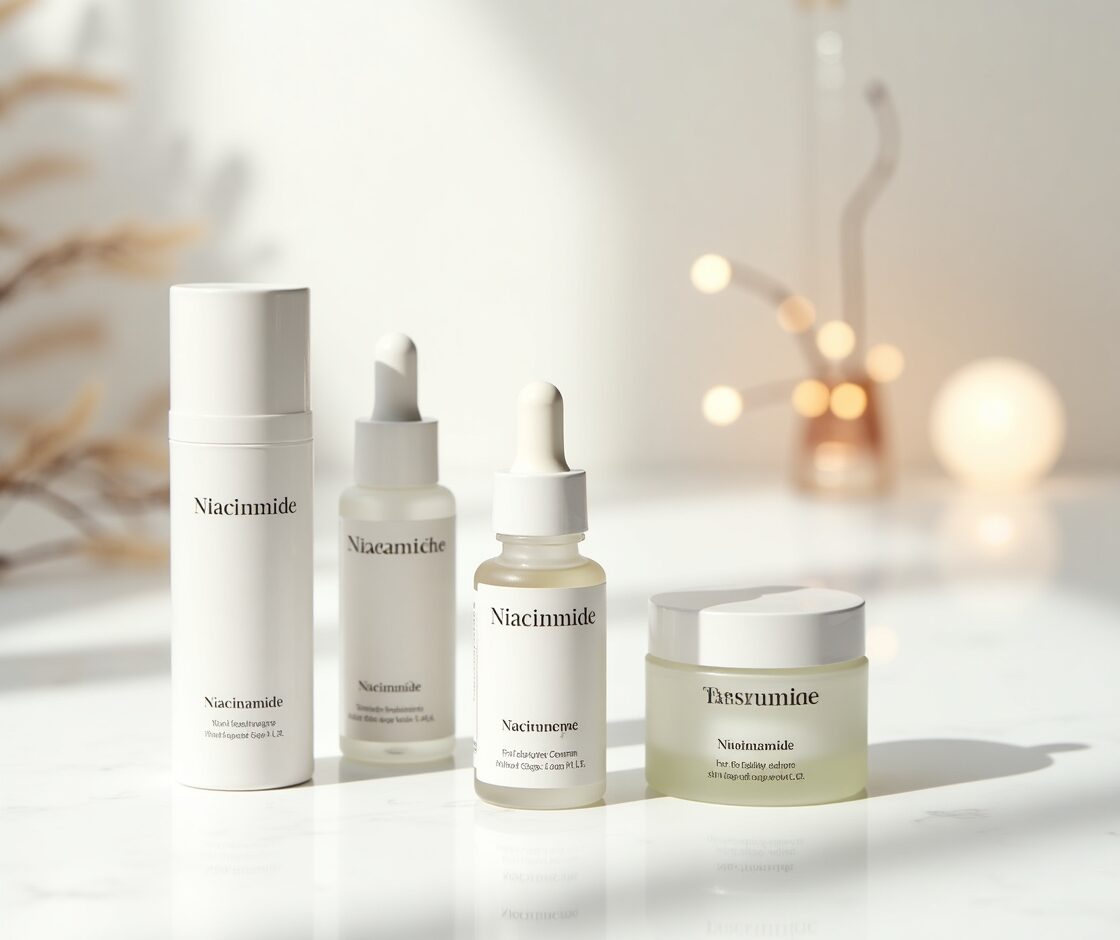
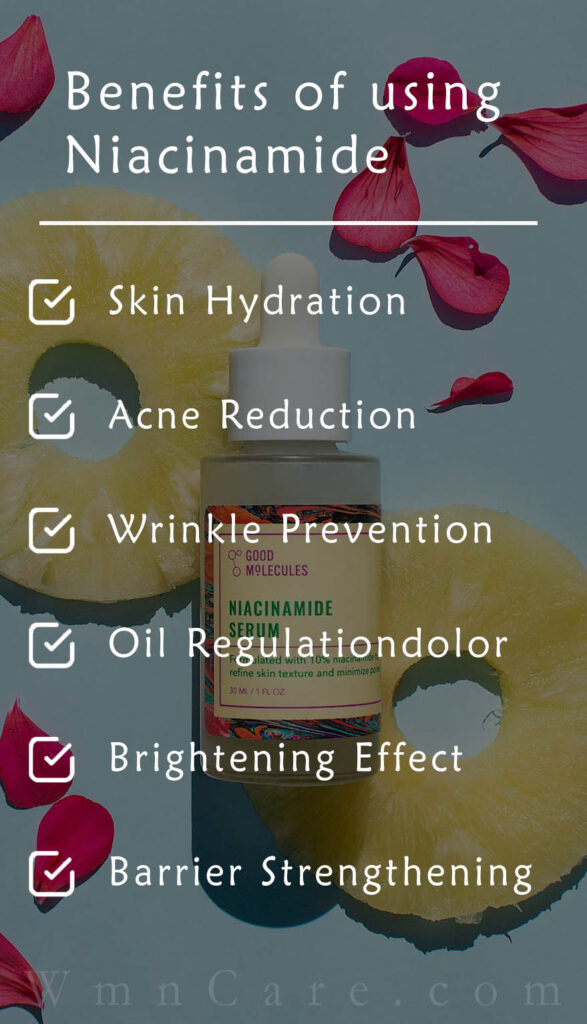
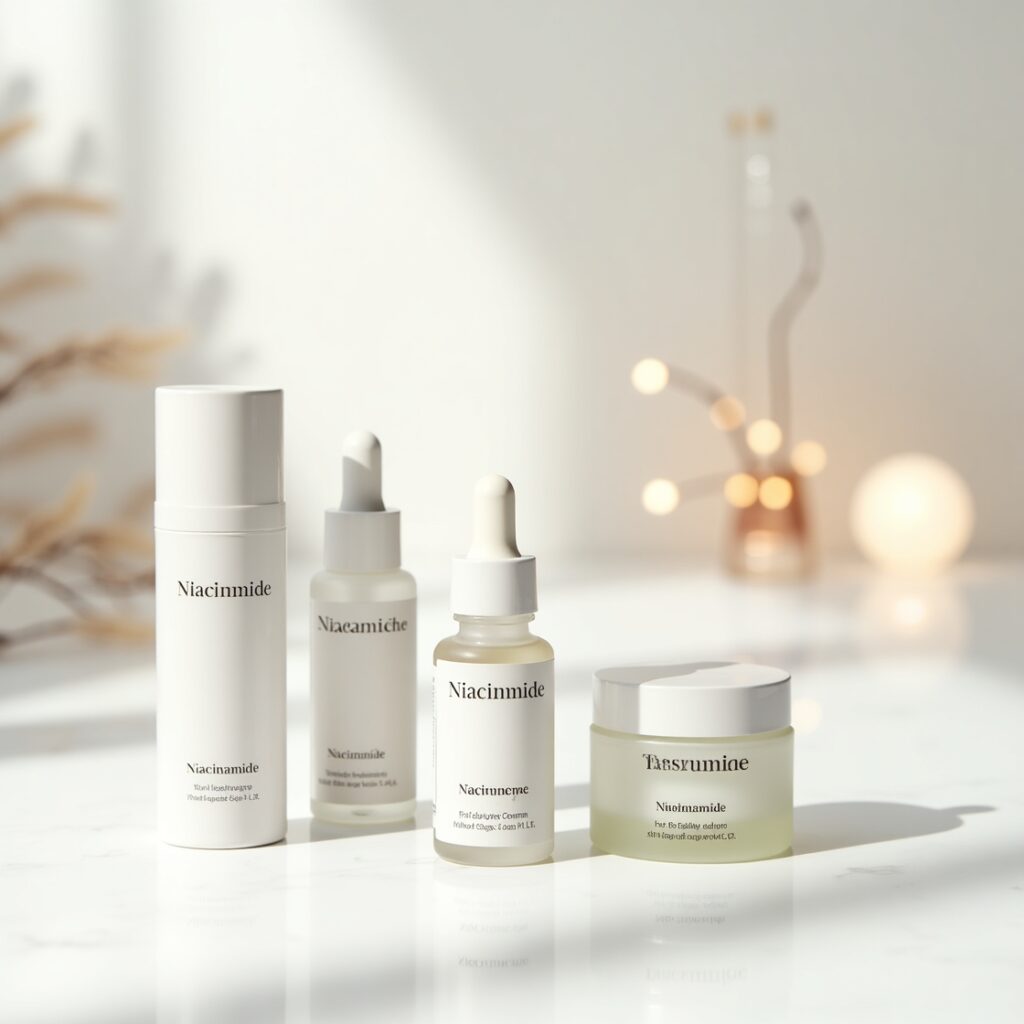

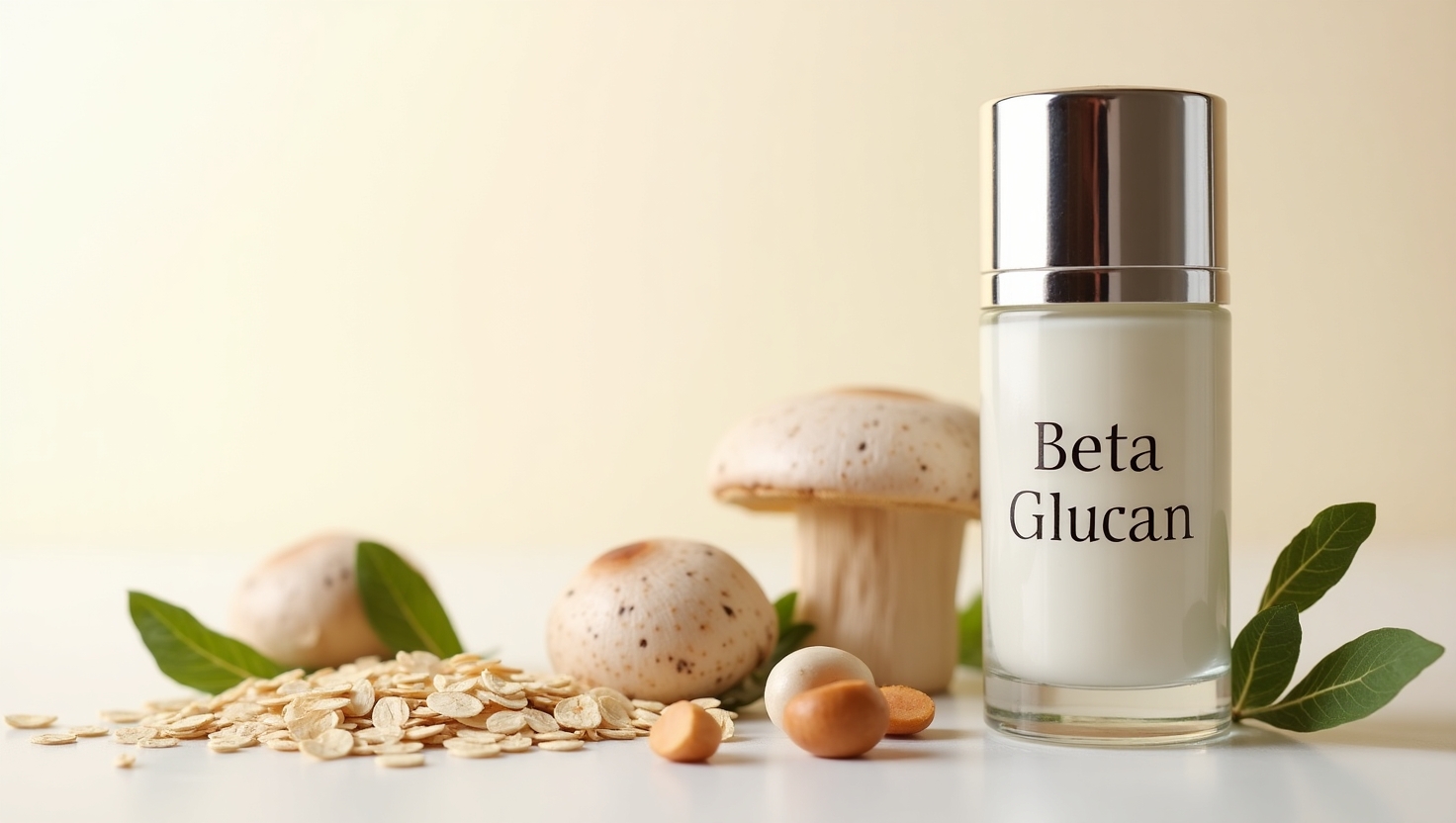

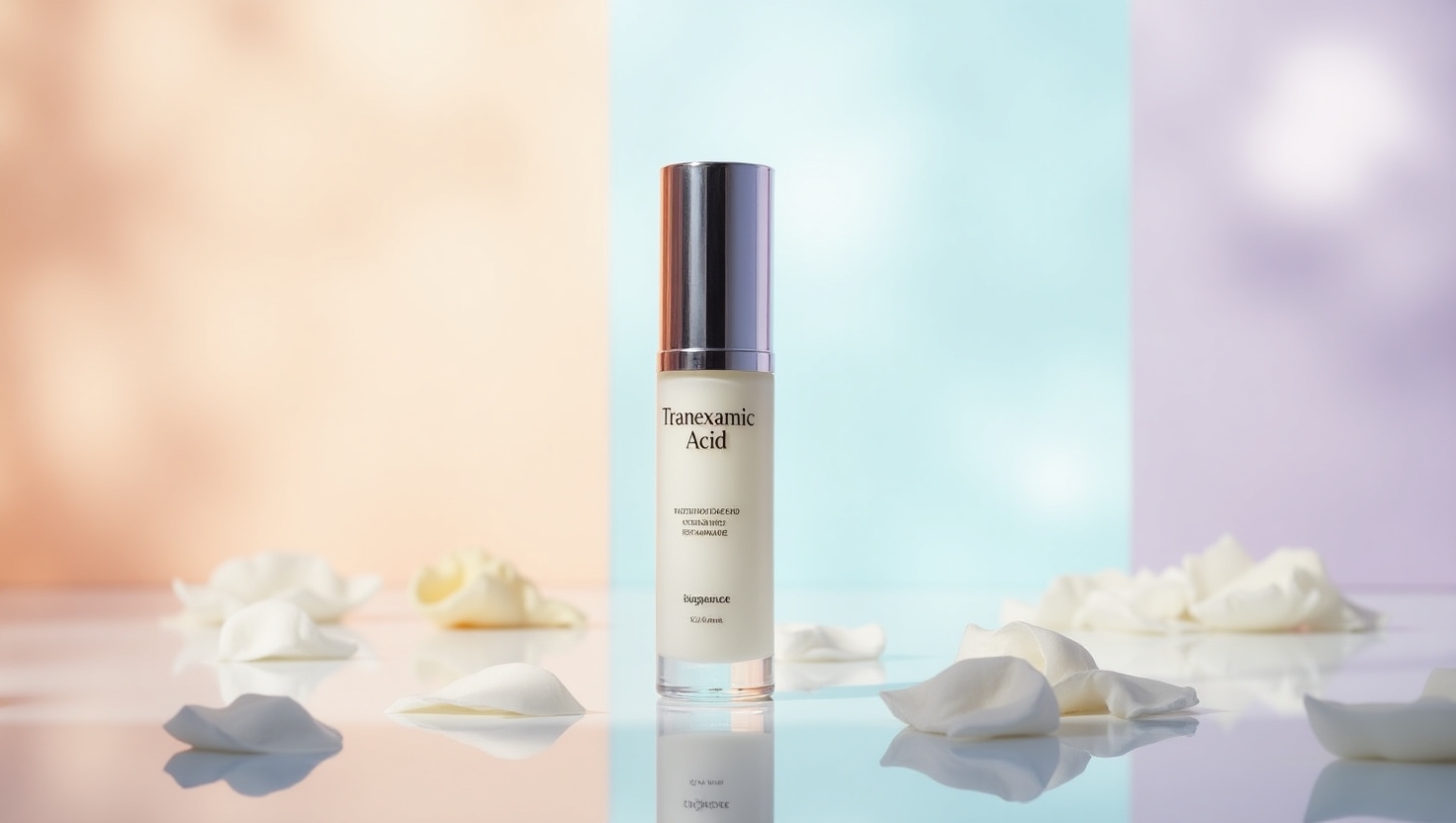




[…] Apply a toner with ingredients like witch hazel or niacinamide to minimize inflammation and tighten […]
[…] Niacinamide: Enhances skin barrier function and brightening effects. […]